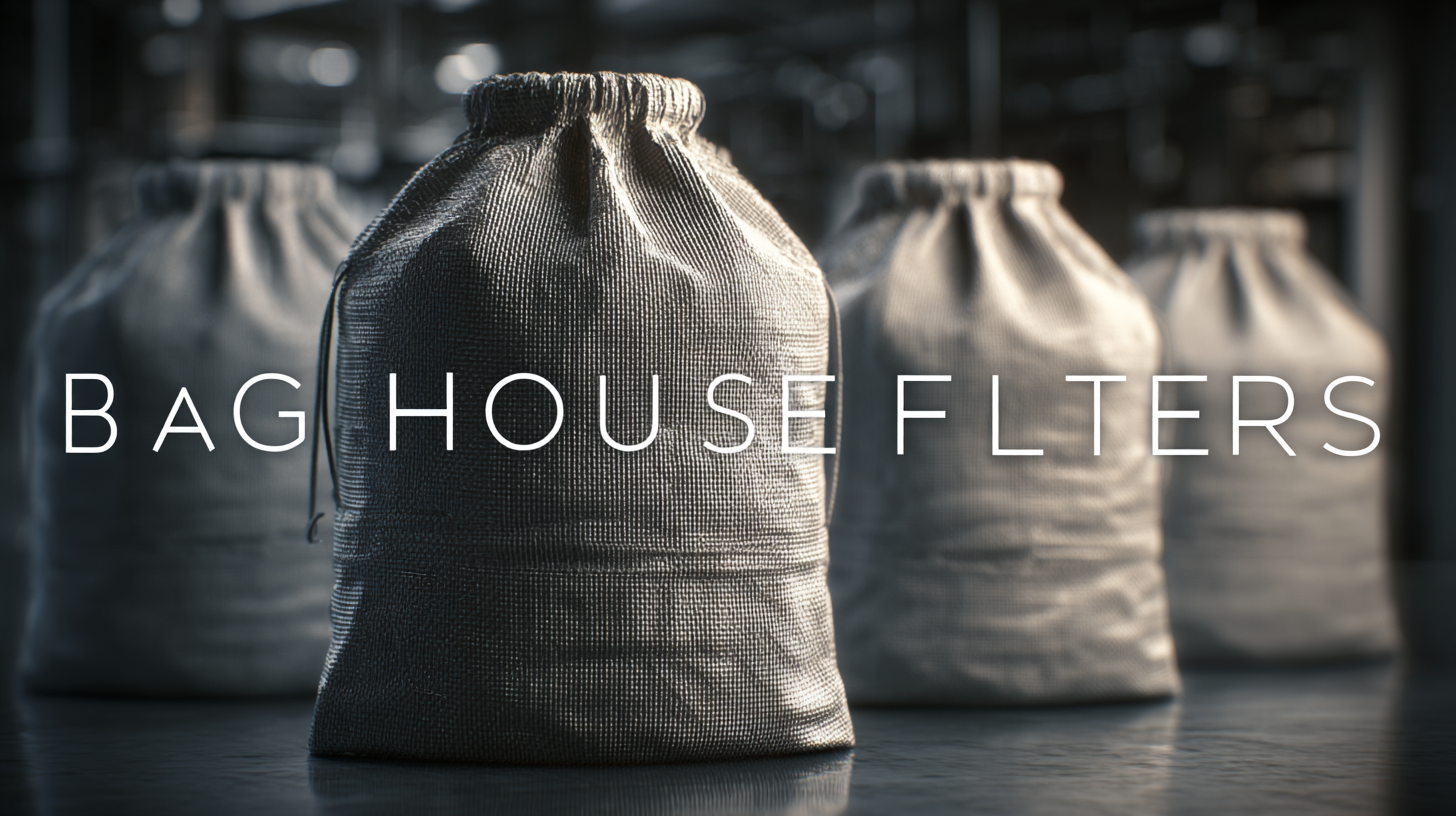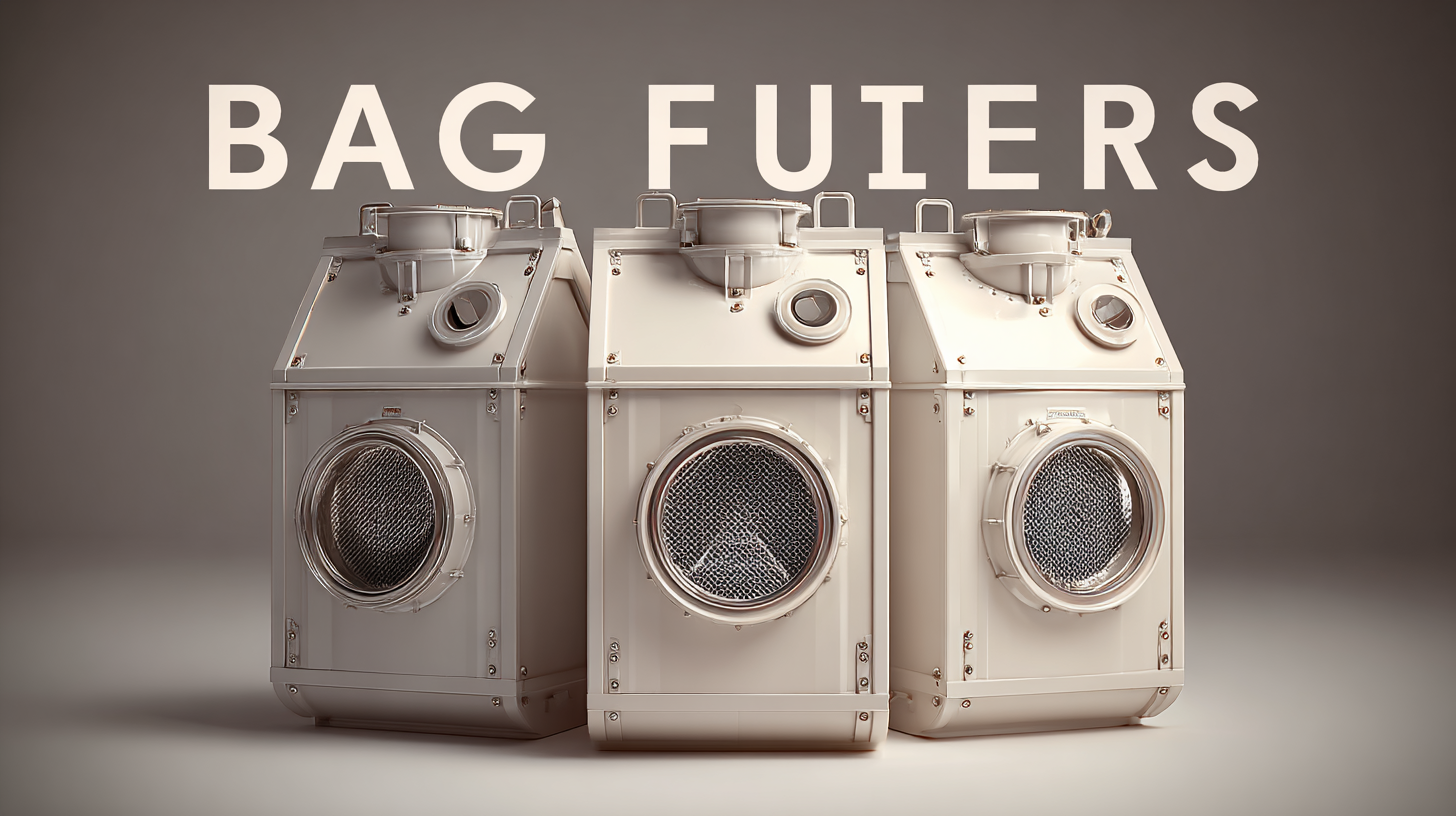How to Choose the Best Bag House Filters for Your Industrial Needs
In the realm of industrial air pollution control, Bag House Filters play a pivotal role in ensuring compliance with environmental regulations while maintaining efficiency in operations. According to the U.S. Environmental Protection Agency, industries contribute significantly to air quality issues, necessitating effective filtration solutions to capture airborne particulates and hazardous substances. Recent market analysis indicates that the global baghouse filter market is expected to reach $5.2 billion by 2026, reflecting a growing awareness among manufacturers about the importance of air quality and dust control. Selecting the right Bag House Filters is crucial for optimizing performance, reducing operational costs, and extending equipment lifespan.

This tutorial will guide you through the essential factors to consider when choosing the best baghouse filters for your specific industrial needs, ensuring that your facility not only meets regulatory standards but also enhances overall productivity.
Key Factors to Consider When Selecting Bag House Filters for Your Industry
When selecting bag house filters for your industrial needs, several key factors should be considered to ensure optimal performance and efficiency. First and foremost, the type of dust or particulate matter being filtered plays a crucial role in filter selection. Industries dealing with diverse contaminants, such as metal shavings or chemical dust, may require specialized filter media that can withstand the specific challenges posed by these particles. Understanding the properties of your emissions will guide you toward the most suitable filter material.
Another vital consideration is the airflow rate and filter size. Proper sizing is essential to maintain the ideal airflow without causing excessive pressure drop, which can reduce system efficiency. Additionally, compatibility with existing equipment and ease of installation and maintenance can significantly affect the operational uptime and overall cost-effectiveness of your filtration system. As the air filter market is projected to grow significantly, reaching $29.11 billion by 2032, investing in the right bag house filters can lead to improved air quality and regulatory compliance for your facility.
Bag House Filters Performance Comparison
Top 5 Types of Bag House Filters and Their Unique Benefits
When it comes to selecting the right bag house filters for industrial applications, understanding the unique benefits of each type can greatly enhance operational efficiency. The first category worth considering is the pulse-jet filter. These filters are designed to provide high filtration efficiency with the capability to handle extreme dust loads. They utilize a pulse of air to dislodge collected dust, ensuring a longer service life and reducing maintenance costs.
Another popular type is the shaker bag filter. This design incorporates mechanical shaking to remove dust buildup from the bags, making it ideal for industries with less severe dust loads. The simplicity of this system allows for easy installation and operation, while also providing effective cleaning. For environments dealing with finer particles, pleated bag filters emerge as a superior option. They offer a larger surface area for better dust collection, resulting in more extended operational periods between bag replacements.
Lastly, industrial applications may benefit from specialty filters, such as those with anti-static properties, suitable for flammable dust environments. By choosing the appropriate filter type based on specific needs, companies can ensure optimal performance and compliance with environmental regulations. Each filter type provides distinct advantages, allowing operators to tailor their choices to achieve the best results for their industrial processes.
Understanding Filtration Efficiency: Why It Matters for Your Operations
Understanding filtration efficiency is crucial for optimizing industrial operations. High-quality bag house filters significantly contribute to maintaining air quality while improving overall productivity. A filter's ability to remove harmful particles directly affects both environmental compliance and operational efficiency. Recent investigations have highlighted that filtration performance can vary widely; for instance, studies on vehicle cabin air filters in China revealed a minimum average filtration efficiency of just 56.1% for particles. This underscores the importance of selecting filters that meet or exceed industry standards to ensure effective air purification.

When choosing bag house filters, consider these tips:
- Assess Filtration Ratings: Look for filters that provide a high rating for particulate matter removal. This ensures that fine particles, which can be detrimental to health and equipment, are adequately captured.
- Evaluate Service Life: Filters with longer service lives can lead to reduced maintenance costs and less frequent replacements. Understand the lifespan of your chosen filters and consider how they will perform under your specific operational conditions.
- Understand Your Environment: Tailor your filter choice to the nature of the pollutants present in your facility. Factors such as moisture levels, temperature fluctuations, and the types of particles generated during your operations will affect filtration efficiency.
By prioritizing filtration efficiency in your operations, you can not only enhance air quality but also boost productivity and compliance with environmental standards.
Maintenance Tips: Maximizing the Lifespan of Your Bag House Filters
Maintaining bag house filters is crucial for ensuring optimal performance and extending their lifespan. Regular inspection and maintenance can prevent costly downtime and improve the efficiency of your industrial operations. According to a report by the Industrial Filtration Association, properly maintained filters can last up to 30% longer than neglected ones. This statistic highlights the importance of establishing a routine maintenance schedule, including checking for wear and tear, and promptly replacing any damaged filters.
To maximize the lifespan of your bag house filters, consider implementing the following tips: first, monitor the pressure drop across the filter regularly. A significant increase in pressure drop can indicate a clog or failure, requiring immediate attention. Second, ensure that your filter bags are made from the right materials for your specific application, as the wrong choice can lead to premature degradation. Finally, invest in an effective cleaning system; regular cleaning helps remove dust buildup, which can enhance filtration efficiency.
Furthermore, keeping a meticulous log of maintenance activities can assist in identifying patterns that might indicate underlying issues. By analyzing this data, industrial operators can make informed decisions about upgrades or changes in filtration strategies, as emphasized in the latest Global Industrial Filtration Market Report, which suggests that proactive maintenance strategies can significantly reduce operational costs.
Cost-Effectiveness: Evaluating Your Investment in Bag House Filtration Solutions
When considering bag house filters for industrial applications, cost-effectiveness should be at the forefront of your investment decision. The initial price of filters can vary widely, and it is essential to evaluate not just the purchase cost but also the long-term operational expenses. High-quality filters may have a higher upfront cost, but they often provide extended service life and superior performance, leading to reduced replacement frequency and lower maintenance costs. By investing in more durable and efficient bag house filters, companies can experience significant savings over time, outweighing the initial expenditure.

Another key factor in assessing cost-effectiveness is the filters’ impact on overall operational efficiency. Efficient filtration reduces the amount of dust and particulate matter released into the environment, which can mitigate the risk of fines and improve compliance with environmental regulations. This not only protects your investment in equipment but also enhances your reputation in the industry. Additionally, improved air quality contributes to a healthier work environment, potentially lowering healthcare costs and increasing employee productivity. By carefully evaluating both the purchase price and the resulting operational benefits, businesses can make informed choices that maximize their return on investment in bag house filtration solutions.
